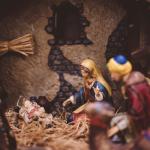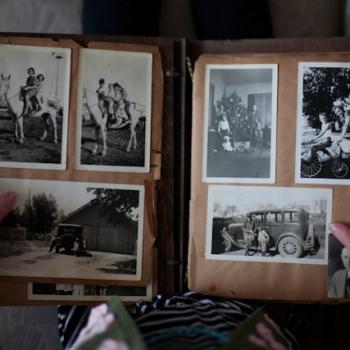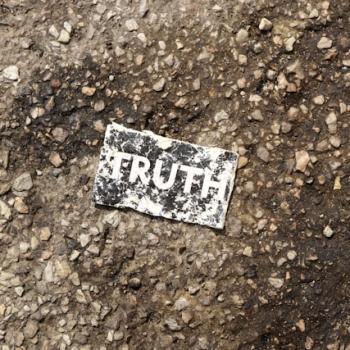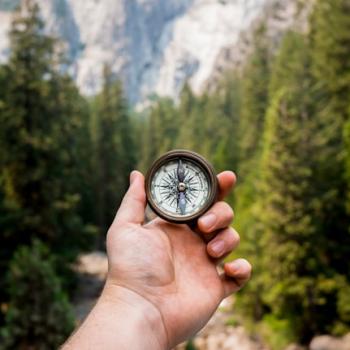
Have you ever heard of Maslow’s Hierarchy of Needs? This psychological concept suggests that human beings have varying levels of motivation based on what needs are being met. For instance, the base of this pyramid is “Safety” and deals with needs such as food and shelter. A person who does not have food, or who is living in a war zone, does not care about such needs as love or self-esteem. The highest point of this pyramid is “Self-Actualization” which deals with such needs as creativity and acceptance.
There really is no scientific proof for the Hierarchy of Needs, though most Psychology is what we call a “soft science”. While I agree with the basic premise: that human beings have a number of needs that may be prioritized one over the other, motivation isn’t so simple.
A starving child may spend most of their time trying to figure out how to fill their belly, but that doesn’t mean they will not spend any time crying over the loss of a family structure or fearing for a future where they have no means of improving their station. I think the countless Revolutionary Wars are proof that we, as human beings, are willing to place our safety at risk in order to reach those “higher levels” of Maslow’s hierarchy.
A book that addresses this basic need for self-actualization is the complex, literary sci-fi novel, The Midnight Library.
The Horror of a Life Lived.
The Midnight Library follows Nora Seed, an incredibly unhappy woman in her late 30s. Nora has countless regrets in her life. Her choices have led to a life alone with her cat in London. When one horrible day leads to her losing her job, her side-job, and her cat all in one night, Nora makes the worst decision she could in the situation and decides to end it all.
After downing a bottle full of pills, Nora finds herself stuck in a sort of limbo. The Midnight Library is a library balanced between life and death where the clock always reads midnight. In it, Nora can choose different books that represent alternate realities off the shelves. Each of these realities hinges on a single choice. By making those choices, Nora can live the life of her alternate self. The moment she is dissatisfied, her experience is over. If she never experiences dissatisfaction, Nora can disappear into that new life and live it to its natural conclusion.
The majority of the book leads Nora through the various versions of her own life. She lives a life where she did not break up with her fiancé, and they own a pub together on the shore. In another, she pursued science and worked in the North Pole. In yet another, she continued pursuing her music career, and is a global superstar, though her brother is dead of an overdose.
Through each experience, Nora faces the danger of lingering too long between life and death. If the clock moves past midnight, she will slip over into death, and be lost forever.
The Choices that Define Us.
As Nora drifts in and out between multiple realities, she finds that happiness isn’t as simple as fixing one regret. Often a regret resolved creates multiple other regrets. Many times the changes she needed to improve her own life devastated the lives of those around her.
If she chose to move to Australia with her friend, for instance, then her friend died in a car accident.
Some things could not be changed no matter what she did. She believed her cat had been killed outdoors by a car. when she lived a life where she chose not to let the cat outside, he still died under the bed from a genetic illness.
In a final, near-perfect life, she found great happiness as a mother, a scientist, and a wife. She did not live far from her original home in London. When she returned, however, she found that her music student was a drug addict, and the older gentleman she brought groceries to was dead.
Finally, as the library crumbles around her, and death is near, Nora decides to escape back into her original life. She gets medical help and survives her suicide attempt.
In a conversation in the hospital with the brother she had previously lost touch with, Nora admits that life is about the choices we make. But it’s never too late to make the right choice.
If I had to choose the most unsatisfying ending, after the suicide attempt, this would be it. I do think, however, that any search for meaning outside of Christ will always feel fundamentally unsatisfying to me.

Unhappiness is Huge
I like to say I am a Nihilist saved by Grace. Or that I don’t lean into all five points, but I’m still the most Calvinist person out there. I tend to be pessimistic, distrustful, and have an incredibly negative outlook on life. Sure, it might not be something worth taking pride in, but according to science, pessimists have a better grasp on reality. So there is that.
When I look at the big, existential questions about life, I have a difficult time with the atheistic narrative that life is about enjoying the little things, and living in the moment until death takes us. In the horror show, Midnight Mass, one of the characters, having lost her faith in God, waxes poetically about breaking down into a million atoms and being spread across the universe. Likewise, the end of Philosophy-centered comedy “The Good Place” ends with an optimistic, agnostic idea of being sprinkled over the universe and thus always being near the people we love.
I think if I were to sit down and speak to Nora with such concepts in my mind, I would have very little hope to give her. After all, she may have had a hundred options of relatively good lives to choose from. Many of us, however, do not have such opportunities.
Nora may have been able to choose between life as an Olympic swimmer, or life as a famous musician. If a street orphan in India, for instance, had entered the Midnight Library, they might have a choice only between being trafficked, begging for food, or selling their infant sister to feed the rest of their siblings. These are real choices that many have to make to this day.
Life is not a matter of taking joy in the little things. Sometimes there is genuinely no joy to find.
That is not to dismiss the trials that real people like Nora are dealing with. Loneliness, the loss of relationships, and the loss of jobs are all real troubles. We could note how strange it is that people struggling with the top section of Maslow’s hierarchy are faster to turn it back into the first tier. But again, the science on those matters is wobbly at best.
I think what’s more important to note is that those who have happiness within reach are much more unwilling to live without it. Yet, they are much less likely to find it. A child is, arguably, one of the least safe individuals on earth. Young children face many dangers, especially if they are not protected by those who are supposed to care for them. Yet, it’s hard to find anyone as joyful and carefree as a child.
Is Happiness the Answer?
When we face heart-wrenching questions about suicide and mental health issues, many people are faced with the understanding that those who chose to take their own lives were just unhappy.
Perhaps it was an illness. No different than, as one friend once wrote, cancer or covid.
Maybe it is a social matter. Many parents of children suffering from gender dysphoria have been asked “Would you rather have a dead son or a living daughter?”
Perhaps it is a matter of circumstances. If the government provided adequate health care, the cost of living was lower, and bullying didn’t exist, perhaps that individual would still be around.
There are aspects of all of these questions that we must ask and look at. People are complex. There is not a single answer.
Some people would deny there was an answer and argue that if someone wants to die, we have no right to stand in the way. As someone who spent most of my adult life caring for a depressed and suicidal husband, I’ve heard that argument. I’ve also heard it turned around on me when I was told “You didn’t do enough. You should have done more.”
As someone who battles depression, anxiety, and CPTSD myself, I have been tempted on multiple occasions to consider the possibility of “ending it all.” I think many of us have. I have not gotten far in that direction though. For me, it is the same pessimism that causes the temptation that grounds me.
What if we were to change our approach to life? Scripture is very clear that God wants us to enjoy a simple life. He has given us good food. The ability to experience great joy. Sex. Family. Friendship. Creativity. We have so much to take delight in. Scripture is also very clear that happiness is not our chief aim in life.
In the book of Ecclesiastes, scripture introduces us to the realities of life “Under the Sun” (On Earth, apart from God). Solomon, the son of David and wisest of all men decided to try an experiment very much like Nora in The Midnight Library. A lot like Elizabeth Gilbert in Eat, Pray, Love. Very much like most of us in our daily lives.
Solomon, in the second chapter of Ecclesiastes, says “Come now, I will test you with pleasure. Enjoy yourself”. But behold, this also was vanity. I said of laughter, “It is mad” and of pleasure “What use is it?” (Ecclesiastes 2:1-2)
The problem is, that Solomon leaves the path of wisdom to search for joy, but cannot find it anywhere else either. Labor, he lists as vanity. Wisdom is vanity. Success was vanity. Just like most of the rich and powerful of today, Solomon learned that his heart was never satisfied. Not only was pleasure not good enough to dedicate his life to, but nothing else was either.
1 Corinthians 10:31 carefully points us into the direction of true meaning. “Whether you eat or drink, whatever you do, do it all to the glory of God.”
In scripture, eating and drinking is shorthand for indulging and enjoying life. Scripture tells us that it is good to enjoy life. But whether or not our lives our enjoyable or not, our ultimate purpose lies in Christ.
Pleasure comes and goes. We can be on the heights of joy and it can be ripped away in a second. We can be suffering the worst of sorrows, and find joy hidden in unexpected places. If we choose to focus our lives on pleasure, we will find we are chasing the wind. (Ecclesiastes 6:9) But if we find our purpose in Christ, who has already given himself entirely to us, we will find “fullness of joy” in His presence and “Pleasure at your right hand forevermore.”
Yes, a Christian life, just like any, is fraught with sorrows and hardships. You may even find yourself wanting to leave it in one way or another. You can either choose to chase after meaninglessness and “vanity”, or taste and see that the Lord is good. What will you choose?
Join me on Monday, Dec 30th to look at what Alita: Battle Angel tells us about finding ourselves.
My Short story collection, Under the Ancient and Ageless Sky released on Dec 23. If you want to see how I handle themes like faith, hope, mourning, and more in fiction, pick it up.













